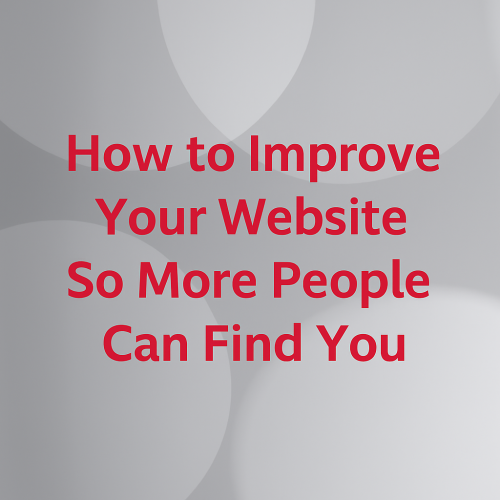Most business owners know their website is important, but between running the business and keeping content up to date, SEO can feel like a full-time job in itself.
Here’s how you can use it to make your website more discoverable, AI-friendly, and SEO-strong without becoming a tech expert.
Google rewards websites that clearly explain what they do.
Ask ChatGPT to help you rewrite your homepage, service pages, or blog content in plain, relevant language that includes the words your customers are likely to search.
Example prompt:
“Rewrite this paragraph so it’s easier to read and includes keywords like ‘Kent marketing consultant’ and ‘social media support for small businesses.”
This keeps your tone natural while helping search engines understand what your page is about.
2. Generate blog ideas your audience is searching for.
AI tools like ChatGPT can find content gaps and trending topics based on your industry.
Ask:
“What blog topics would attract local businesses looking for marketing help in Kent?”
You’ll instantly have a list of SEO-friendly titles to work from, no more staring at a blank screen.
3. Optimise meta descriptions and headlines.
Short, engaging page titles and meta descriptions help you stand out on Google.
ChatGPT can write several versions, test different tones, and help you choose the most click-worthy combination.
Try:
“Write three meta descriptions under 155 characters for a blog about website SEO tips.”
4. Improve accessibility (and ranking).
Search engines increasingly value accessible websites.
ChatGPT can help you:
Write alt text for your images (great for SEO and accessibility).
Create clear headings that make sense to readers and search engines.
Rewrite content so it’s easy to scan on mobile.
5. Keep it consistent.
One of the biggest SEO killers is inconsistency, outdated pages, broken links, or half-finished blogs.
Ask ChatGPT to create a content plan or audit checklist so you stay on top of updates and keep your site fresh.
6. Think beyond Google
AI-powered search tools like ChatGPT, Perplexity, and Microsoft Copilot are changing how people discover businesses.
These platforms rely on clear, structured, well-written content to answer queries, exactly the kind of content you can create with ChatGPT’s help.
If your website reads naturally, answers questions clearly, and is regularly updated, you’re not just SEO-friendly, you’re AI-ready.
In short
ChatGPT won’t replace your expertise, but it can make sure the world can actually find it.
Start small: rewrite one page, refresh a few blog posts, or plan next month’s topics.
The goal isn’t perfection, it’s progress.
If you’d like to improve your website’s content and visibility, I can help you put these ideas into action.

